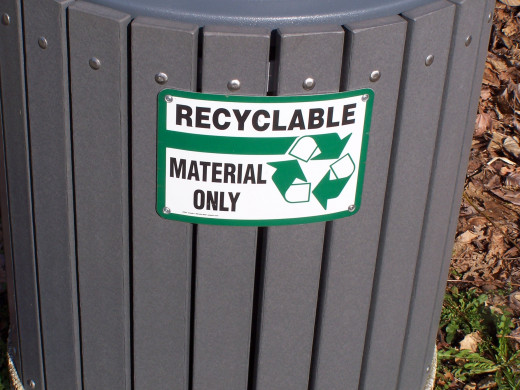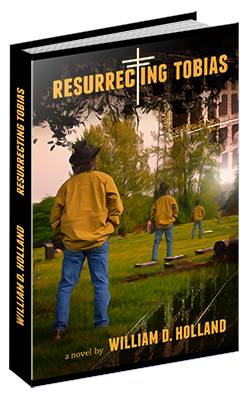The Writer's Mailbag: Installment Forty-Five
Welcome Back
I had a good weekend and I hope you did as well. We sold some quail to a young family just starting out, so we spent some time with them setting things up and answering questions. Of course we worked in the garden. I love it when the seedlings poke out of the ground and the promise of a great crop is right around the corner. The sun was shining all weekend and it was just good to be me for two great days.
Heck, it’s good to be me all days. J
Here we go with more questions. Ready or not, here they come!

HOARDING
From John: “I have a question of sorts. Being the hoarder that I am and reluctant to dispose of anything that may have a future use, I still have everything I have ever written. From before computers and the Internet I have lots of handwritten and typed stories, poems etc. many of which I have now refurbished and updated as hubs. Given that your writing skills change and improve over time, do you think it is wise to rework your old writing, or do you think it's better just to file the old stuff away and devote your efforts to creating new current material?”
John, this is a question I think most writers can relate to. I have legal pads about five feet from me, and they are filled with notes and stories I wrote years ago. I won’t toss them out and that’s a damned sure thing.
Should you re-work your old stuff? I think that’s your call, buddy, but I know I will re-work mine when time allows. What I usually do is take parts from old writings and incorporate it into new articles or new novels. There are paragraphs that I wrote a long time ago that work quite well in new stories and books of mine, and since I’m a firm believer in not re-inventing the wheel, I’ll borrow from the old when needed.


Using Our Real Names
From Glimmer: “I think I have mentioned to you before about regrets about not using my name when I started here. What are your thoughts on using a real name to write versus a screen name/alias not only here at HP, but in all forms of writing? And apologies if this has been asked before.”
Welcome to the club, Glimmer. I have been kicking myself in the butt for over three years now for calling myself billybuc instead of Bill Holland. What my thought process was three years ago I cannot tell you, but it was a bad one.
Listen, all of you just starting out: if you have plans of being a freelance writer or an author, name recognition is huge, and that recognition is made infinitely easier if you continue to flood the internet with one name….yours. I have one-thousand articles on HP under one name and it in no way relates to my name as an author, and I’m getting upset right now just thinking about it. LOL Learn from my mistake and start out with your name and not some cutey pie stupid name that means nothing to nobody. J
Freelancing and Business Training
From Kailey: “Bill,
Thank you for always helping other writers understand what it takes to be a freelancer. You gave some advice I had not yet heard of. I was going to ask, do you think one needs a background in business to do this?”
Kailey is referring to whether a writer needs a business background to run a freelance writing business. The answer, in my opinion, is no, Kailey. It wouldn’t hurt, naturally, but I think what is much more important is common sense and a good work ethic.
Is It Suitable?
From Linda: “Now, I have a question. A dear friend began writing a book 14 years ago and is now wanting to get serious about it. Revising, editing, and (ultimately) publishing. It is a work of fiction for children. My question is how does one know that their writing (tone, vocabulary, etc.) is suitable for the target audience?”
Great question, Linda, and a first for the Mailbag.
Two ways come to mind. One, you can read other fictional books for that genre and gauge for yourself whether your book is suitable, but I have this thing about authors judging themselves. I don’t think we can be objective when doing things like that. So that leaves you with door number two: have another writer judge for you….or someone who is intimately familiar with that audience, like an elementary teacher.
Oh, I just thought of a third way: you could join an online writers group specifically for children fiction writers. Get their feedback. Ooh, I just thought of a fourth…take the manuscript to the library and ask for their opinion…or to an elementary teacher and as for their opinion.
I’m sure there are other ways but those came to me immediately.
FLASHBACKS
Again from Linda: “Bill, I have one more for you. When I talk with friends and tell them a story, I start at the beginning and lay it out chronologically. In much fiction writing, there are flashbacks or a story set within a story. If done well it works. Is there some rule (or magic formula) for using flashbacks and/or knowing when to introduce more characters (a story within a story)?”
Linda, you are just full of great questions today. I’m a little confused by this one only because you asked about flashbacks and then slipped a quick question about introducing characters right at the end. Well, I can handle it. First, flashbacks.
Flashbacks are not something I would suggest a novice to try. They are difficult to do properly. Think about it this way: the entire book is being written in one temporal frame, but then there are snippets from another time. Flashbacks have a tendency, when in the hands of a novice writer, to ruin the flow of the story and add confusion instead of clarification, which is their express purpose. Flashbacks are old news, and in writing, old news can be like old bread, stale instead of fresh.
But….a good flashback can bring great clarity regarding a character’s motives. A good flashback can fill in events that show how the story situation reached the current point, and a good flashback can provide important information that happened long ago that there is no way to introduce in any other way.
Flashbacks can be introduced in a number of ways. You can introduce them through a character’s recollection of something that happened in the past. You can use a flashback as an entire chapter; they are still recollections but now they are extended in nature to provide more back-story. They can also be added using italicized inserts. Others have used a reference to journals or letters found or read, and lastly I’ve seen flashbacks told using a dream.
I hope that helps, Linda.
As for knowing when to introduce characters into a story, I have two rules and two rules only: one, the character must serve a purpose and two, the introduction of the character needs to be consistent with the flow of the story. Never interrupt the rhythm of your book to introduce a character.

Time to Write a Novel
From Marsha: “This may seem like a silly question, but how long does it take to write a novel?”
I’m an old teacher, Marsha, so I believe there are no silly questions if their intent is real.
How long to write a novel? As long as it takes.
Listen, if quality is not an issue, I can write a full-length novel in a couple months. It would be junk but it would have all the elements of a novel in it. But if quality is an issue, then it will take as long as it takes. For me, it takes about eight months from start to finish. I have a friend who has been working on his science fiction novel for three years. Don’t allow time to be a factor. Take as long as you need to produce a quality product you can be proud of.
And That’s All We Have Time for This Week
Is it just me, or are the questions getting better each week? Thanks to all who had questions this week. I greatly appreciate your efforts and I hope I gave satisfying answers.
Have a great week of writing. Remember that what you write today will be read one-hundred years from today.
Kind of puts things in perspective, doesn’t it?
2015 William D. Holland (aka billybuc)
“Helping writers to spread their wings and fly.”








